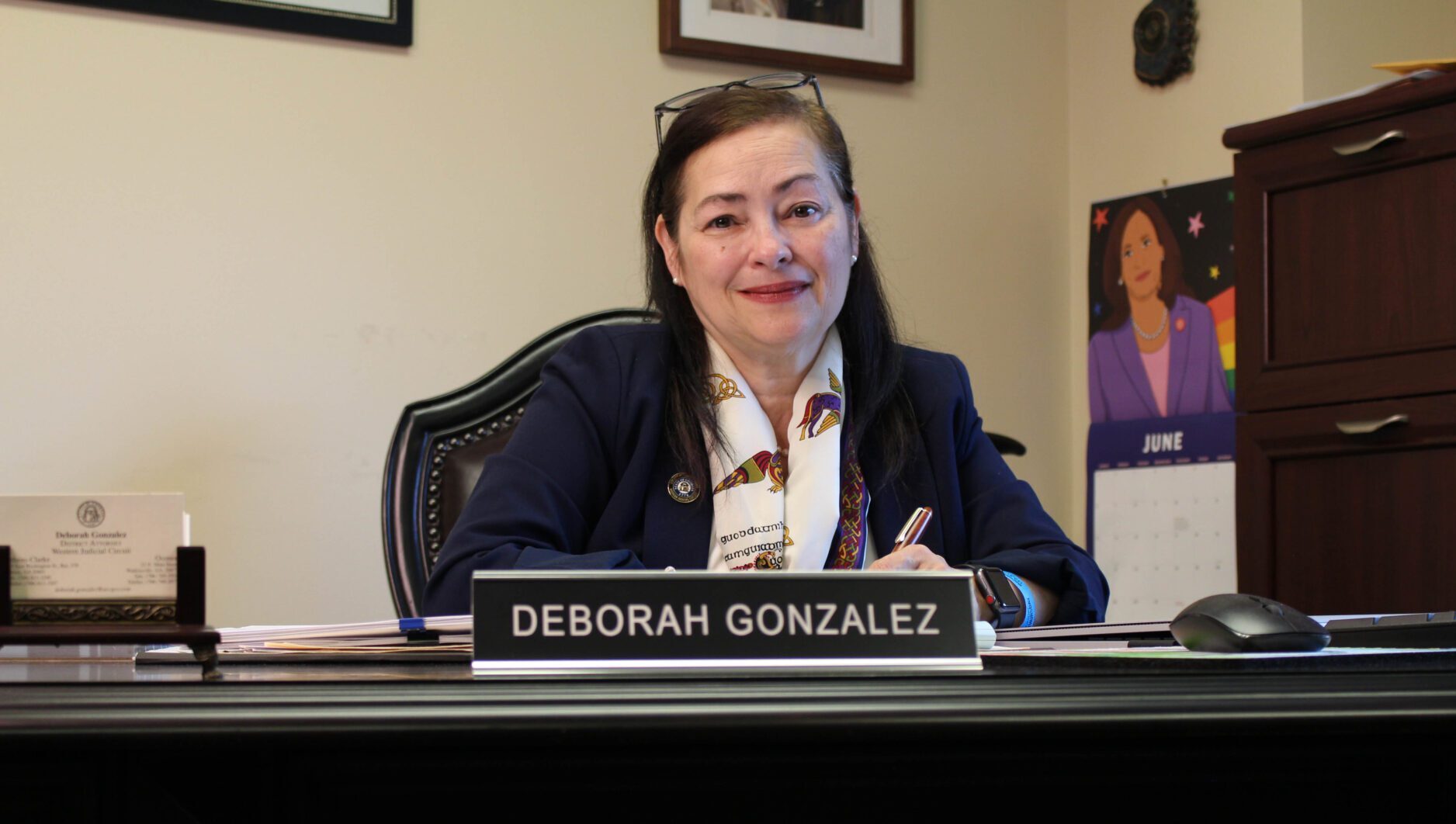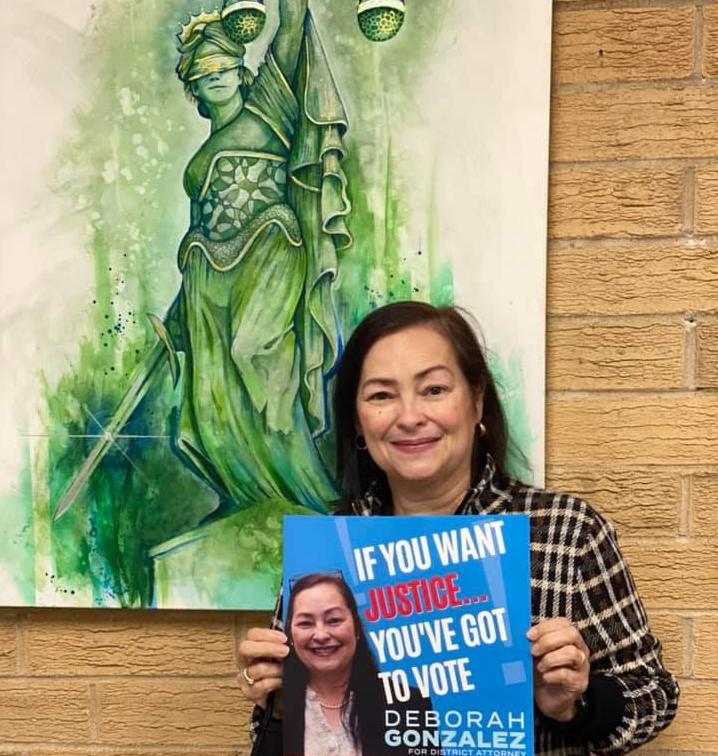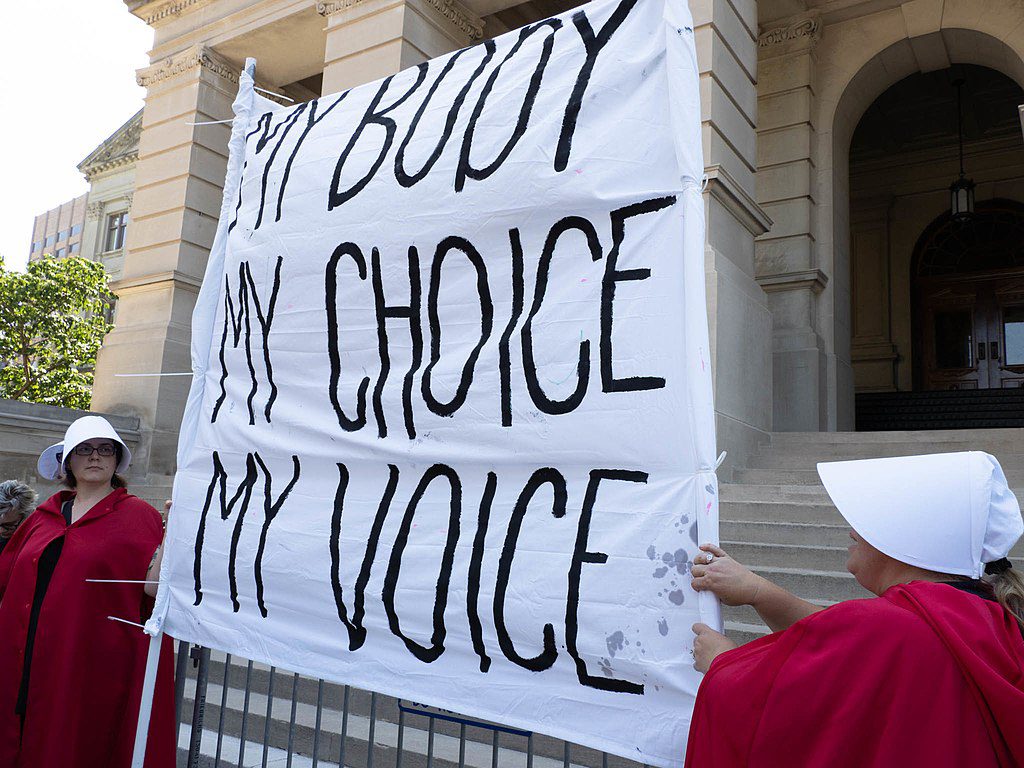“A Target on My Back”: New GOP Law Aims to Force Georgia Prosecutors’ Hands
A Georgia DA speaks against a new state board with authority to oust prosecutors who don’t charge abortion and other cases, part of an escalating GOP crackdown since Dobbs.
Daniel Nichanian | May 5, 2023


Georgia Republicans have pushed through legislation that threatens to remove from office locally-elected prosecutors who won’t charge certain types of cases, such as abortion or marijuana.
Senate Bill 92, signed by Governor Brian Kemp on Friday, adds to the GOP’s nationwide crackdown against reform-minded prosecutors who have adopted such “declination” policies. Texas Republicans are in the process of passing a bill meant to force the hand of district attorneys who have ruled out enforcing abortion bans. Florida Governor Ron DeSantis removed Tampa’s prosecutor from office in August, pointing to statements he’d made about protecting abortion. Similar moves are underway in other states.
The bill sets up a new board with the authority to oust DAs who don’t fulfill their duties. It also redefines the duties of DAs—and so what counts as grounds for removal—to specify that they cannot “categorically” refuse to prosecute offenses that they are “by law required to prosecute.”
Criminal justice reformers have long aimed for increased oversight over DAs, frustrated that prosecutors routinely violate ethics and defendants’ rights with little consequence. In the wake of the shooting of Armaud Arbery and of allegations that a local DA blocked investigations into his death in 2020, Georgia Democrats proposed a bill that would have created a similar state disciplinary board. But their bill did not contain a mandate that DAs file charges based on all existing laws. Republicans added that language when they repurposed the proposal this year, motivated in part by the aftermath of Dobbs, and Democratic lawmakers opposed the resulting bill.
One of Republicans’ prime target is Deborah Gonzalez, the Democratic DA of Athens-Clarke and Oconee counties. Gonzalez won on a progressive platform in 2020 and quickly rolled out reforms that included ending prosecutions over marijuana possession, a charge that has been used in Athens to target Black residents. After the Supreme Court overturned Roe vs. Wade in June, Gonzalez joined other Georgia DAs in saying she would not prosecute abortion.
Republicans have signaled that they want their new state board to kick Gonzalez out of her elected office over cases she is not charging. “What do we do about these prosecutors who won’t prosecute?” asked Ed Setzler, a GOP lawmaker from Acworth, two hours west of Athens.
Bolts talked to Gonzalez about SB 92 after the bill passed the legislature. She denounced it as antidemocratic and said her critics want to override an election because they dislike its outcome. She also made the case that it’s appropriate for DAs to not prosecute certain cases—including abortion. In fact, she said, this approach can be a boon for public safety.
“Prosecutorial discretion has not been a problem for generations,” she said, “but because you have a new class of reform-minded prosecutors coming into power who can now use that same discretion to hold people accountable but in a fair and just way, now it’s a problem.”.
Gonzalez has survived other efforts to reduce her power. When she declared her candidacy, Kemp tried to altogether cancel the local DA race, part of a pattern of election cancellations in Georgia, but the state supreme court stepped in to restore the election, which Gonzalez won in a December 2020 runoff. Republicans then proposed a bill to cut her circuit in two. Gonzalez now also faces a lawsuit, filed by a business owner in Athens, that alleges that she is not doing her job and is refusing to prosecute certain offenses like drug cases.
Besides SB 92, Georgia Republicans proposed other bills this year that target prosecutors. One bill would have lowered the number of signatures people have to collect to force a recall election against a DA from 30 to 2 percent of registered voters; the bill died in the state House when the session ended.
Fueling this trend in Georgia is Republican anger toward Fulton County DA Fani Willis, who is investigating former President Donald Trump for his efforts to overturn the 2020 presidential election.
Willis, who is Black, has denounced the GOP bills as a “dangerous” effort to overturn a series of wins by people of color in the state’s 2020 prosecutor races—a criticism that Gonzalez also echoed in her interview with Bolts.
What is your reaction to SB 92 and the new board it sets up?
This is not an oversight bill. It’s an overstep on the part of the legislature to undermine the voice and vote of the people who elected us as DAs based on our approach and what they felt they wanted, in terms of the way that justice should be done in their community. This just takes all of that away.
That happens whenever there’s a shift in power, when people who have traditionally been oppressed are now in those positions because that’s what the community wanted. Those who had always stood by the status quo are not happy and are resisting the change.
When you look at their rhetoric about rogue DAs, progressive DAs, they’re looking at mainly women of color, Democratic DAs who were elected—especially in 2020.
When you talk of your approach to justice, are there specific policies that you think are driving the reaction you describe?
With the overturning of Roe v. Wade, myself and a couple of other prosecutors have come out and said that we would not prosecute women who were seeking reproductive health care nor the doctors who are providing that. I think that was something that many people were against.
That was part of my campaign platform [in 2020], even though it predated Dobbs. Because we knew this was a possibility. Reproductive health rights have always been attacked in the South.
Or, the fact that we said we would focus on serious and violent crime instead of low-level crimes and misdemeanors, focus on those crimes that have the most impact in terms of our community safety, instead of necessarily going after people for simple possession of marijuana.
It seems important to you to say that you ran on these issues.
Exactly. If you look at my campaign website, if you look at my campaign materials, this was my platform, this is what I ran on, and this is what the community elected. I didn’t hide it away.
So much used to happen behind closed doors; they talk about the black box of the judiciary because nobody knew how decisions were made. Now you’re seeing reform minded DAs who are much more transparent in what is happening in their offices, our platforms and what our policies are. That had not happened before.
Republican lawmakers are defending the new law by saying it’s not appropriate for prosecutors to set up a ‘declination’ policy, to say they won’t prosecute a type of cases. What is your approach on that, in terms of how you see the job of a DA?
First of all, every DA office around the country has to prioritize to their capacity. We cannot, it is an impossibility, take every single case all the way to trial. We have limited resources, we only have a certain amount of time. I’ve been asking my county to help me and give me more resources and raise the salaries, I have been very vocal that we have a prosecutor shortage; we had our chief justice of the Georgia supreme court come out saying that we have a prosecutor shortage, especially outside of the Atlanta area, so this is not a secret.
Number two, because we have limited resources, isn’t it better to say, “Look, we’re going to focus on the really important serious stuff here, let’s not waste our time on making arrests on these things?” Do we look at every single case? Yes, absolutely, we do: Before we say what we’re going to do with it, we look at every single one of them, and then make our decisions. But we do prioritize the most serious and the most violent of those cases.
Number three, I think there is a factor of public safety. My community elected me because they feel I shared their values, and by me saying I will not prosecute women for seeking reproductive health care. That also gives a sense of security and safety to women, those constituents of mine, who may have to undergo an abortion—whether it’s medically necessary, or if it’s a choice for them that they make with their doctor about their body—that they feel that they won’t have to worry about being then charged with something, that they can go to a fully licensed doctor and not have to do something in the back alleys, which can put at risk their lives even more so.
Several of your colleagues, including Atlanta’s DA Fani Willis, have pointed to adultery laws when they’ve responded to the view that it’s inappropriate for a DA to not prosecute. They’ve said that adultery is illegal in Georgia and yet no DA goes after adultery cases. Now, this new law bars DAs from “categorically” refusing a type of charge, so how does that affect the status quo on adultery?
I don’t think there’s anybody who would really want to see us all of a sudden start prosecuting adultery.
The first thing is, somebody’s got to get arrested: The police have to do the arrest, we don’t have arresting authority. And I don’t think the police are gonna go out and arrest people.
And no one is objecting that the police have the discretion to not arrest people for adultery.
Right.


Besides marijuana, which you mentioned earlier, one complaint in the lawsuit filed against you is that you’re not prosecuting drug cases. What is your office’s approach to that area?
Marijuana is very different from other kinds of drugs. We’ve never stopped what people consider the traditional prosecution of having drugs with the intent to sell, or producing drugs with the intent to sell. We have always prosecuted those. What we look at is, is that person who has that certain amount of drugs—we have accountability courts that we can put them in if they really have a serious drug addiction. So let’s say we have somebody who’s done 10 shoplifting cases: Maybe the issue is not that they’re shoplifting; the issue is, why are they shoplifting? And if they’re shoplifting to see an addiction, then we need to get them help for the addiction. But putting them in jail just for shoplifting again isn’t going to help them; we have to give them the help that they need to deal with a substance abuse or mental health issue, or whatever it is, to get to the cause. That’s what I look at.
I think people have this idea that prosecution is only what happens in front of the court, that it’s only a trial. I take the view that prosecution is everything that we do in that case, from intake and looking at it and determining, ‘Do we have enough evidence to prove beyond a reasonable doubt, or do we need to dismiss it because there’s missing evidence? Are we going to proceed with accountability courts, or a pre-trial diversion program, or a restorative justice program?’ All that is still prosecution because all that is still holding people accountable for what they’ve done; it’s just holding them accountable in a more humane way and focusing on rehabilitation to reduce recidivism. And then there are those cases where those alternatives do not fit.
One of the things I see in the lawsuit is the idea I’m not doing my job. What they’re really trying to say is they don’t like the way I’m doing my job and they want to determine how I should do my job.
When you responded to my interview request, you knew that I wanted to ask about SB 92 and your policies. How do you think about the consequences of accepting an interview on this topic, since you’re also saying that your public stance on these matters is part of what the law targets?
I always felt I had a target on my back. I had my platform, many of them were not happy when I won, they started immediately with trying to secede, they put in this bill.
I give these interviews though because I want people to understand where I’m coming from and where reform-minded prosecutors come from: We take public safety very seriously, we just believe there’s a better way to do it than just incarcerating people. And we want to be able to use the same tools: Prosecutorial discretion has not been a problem for generations, but because you have a new class of reform minded prosecutors coming into power and who can now use that same discretion to hold people accountable but in a fair and just way, now it’s a problem.
I believe part of that is based on racism, and based on the idea that it threatens the status quo that has kept Black, brown, and poor people oppressed through the criminal legal system.
I don’t think there’s anything more that I could say that would get me into more trouble, or make the target bigger on my back than what it is. I’ve been open and bold from the beginning, and I think that’s part of the reason why my community elected me because they wanted somebody who would speak for them.
This interview has been edited for length and clarity.
The piece was updated on Friday evening to reflect that Governor Brian Kemp signed the bill.




